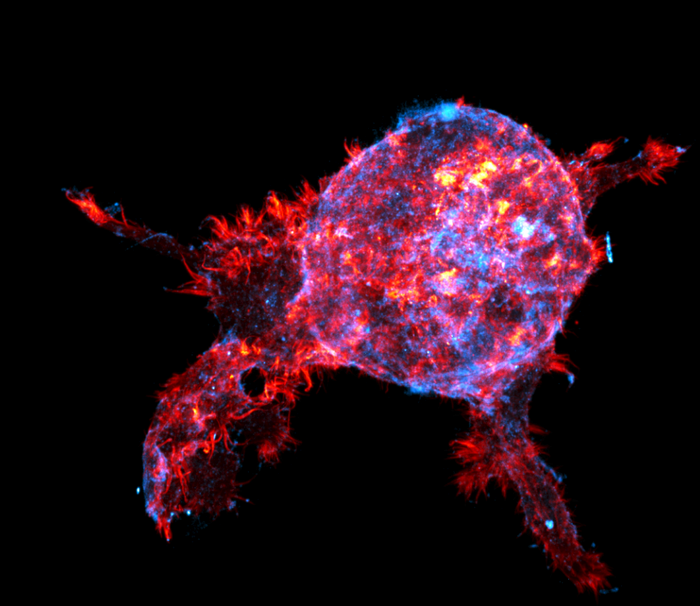Filopodia are thin membrane protrusions that act as antennae for a cell to probe the surrounding environment. Filopodia are found in many different cell types and broadly vary in morphology. A new study in mice by researchers at Turku University and Åbo Akademi University has identified that filopodia contribute to building a barrier surrounding breast tumors.
The findings, “MYO10-filopodia support basement membranes at pre-invasive tumor boundaries,” is published in Developmental Cell.
“Ductal carcinoma in situ (DCIS) is a pre-invasive stage of breast cancer,” wrote the researchers. “During invasion, the encapsulating DCIS basement membrane (BM) is compromised, and tumor cells invade the surrounding stroma. The mechanisms that regulate functional epithelial BMs in vivo are poorly understood. Myosin-X (MYO10) is a filopodia-inducing protein associated with metastasis and poor clinical outcome in invasive breast cancer (IBC). We identify elevated MYO10 expression in human DCIS and IBC, and this suggests links with disease progression.”

“These results are very surprising as we previously thought that these cancer cells’ sticky fingers were only used to invade nearby tissues. Now we find that these structures can also help contain the tumor,” explained Johanna Ivaska, PhD, InFLAMES group leader and professor, molecular cell biology, University of Turku.
These sticky fingers are generated by a protein called Myosin-10. The research teams led by Ivaska, Emilia Peuhu, PhD, docent at the Institute of Biomedicine at the University of Turku, and Guillaume Jacquemet, PhD, InFLAMES group leader and associate professor of cell biology from Åbo Akademi University, found that cancer cells lacking Myosin-10 cannot build and maintain their surrounding barrier, the basement membrane.
“Remove Myosin-10, and the tumors are clearly more aggressive. Their basement membrane is almost completely gone and they spread more freely to the surrounding tissue,” said Peuhu.
“We’ve been looking into developing anti-filopodia strategies to treat cancers, but our new results clearly emphasize that targeting filopodia or Myosin-10 too early could actually make things worse,” said Jacquemet.


